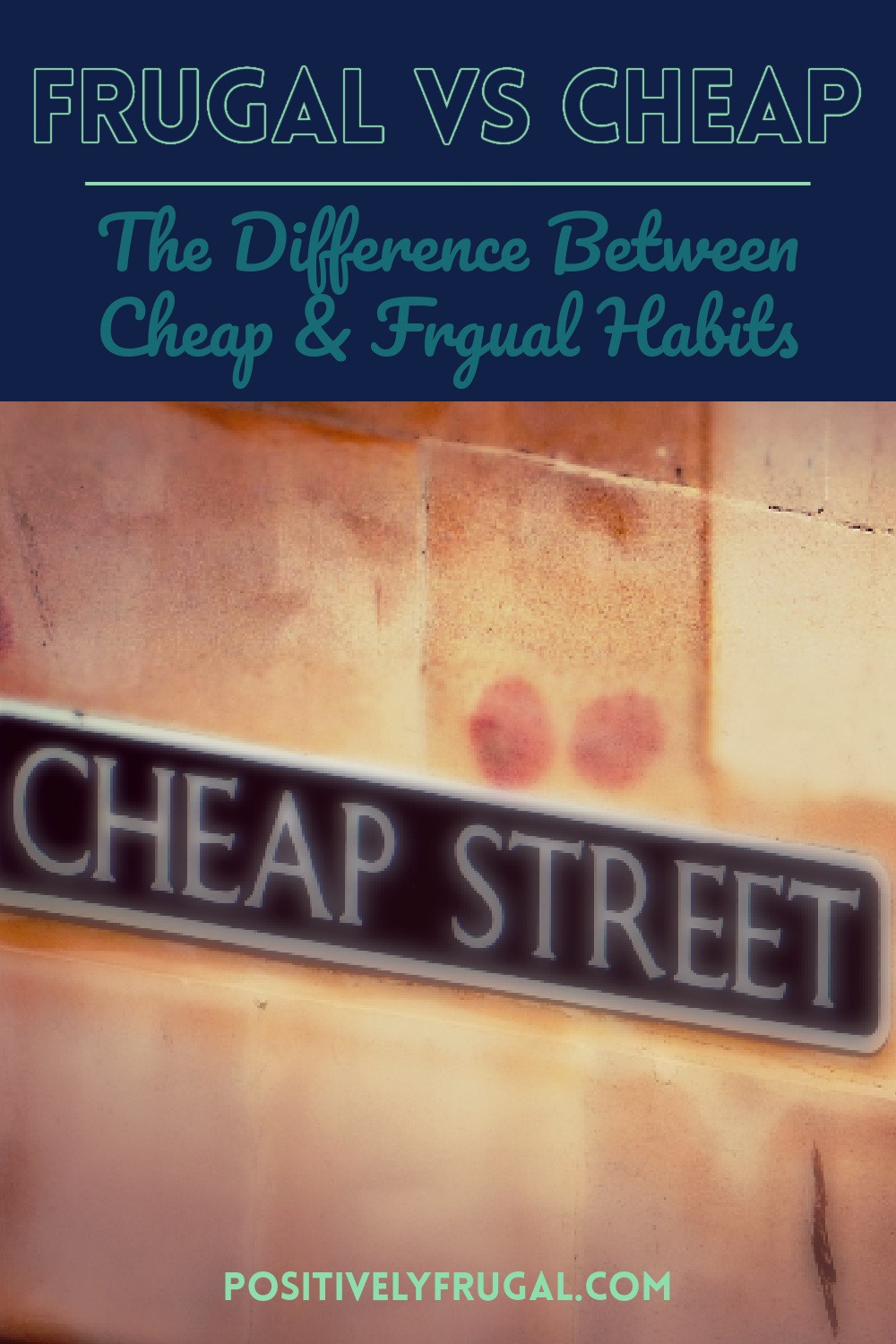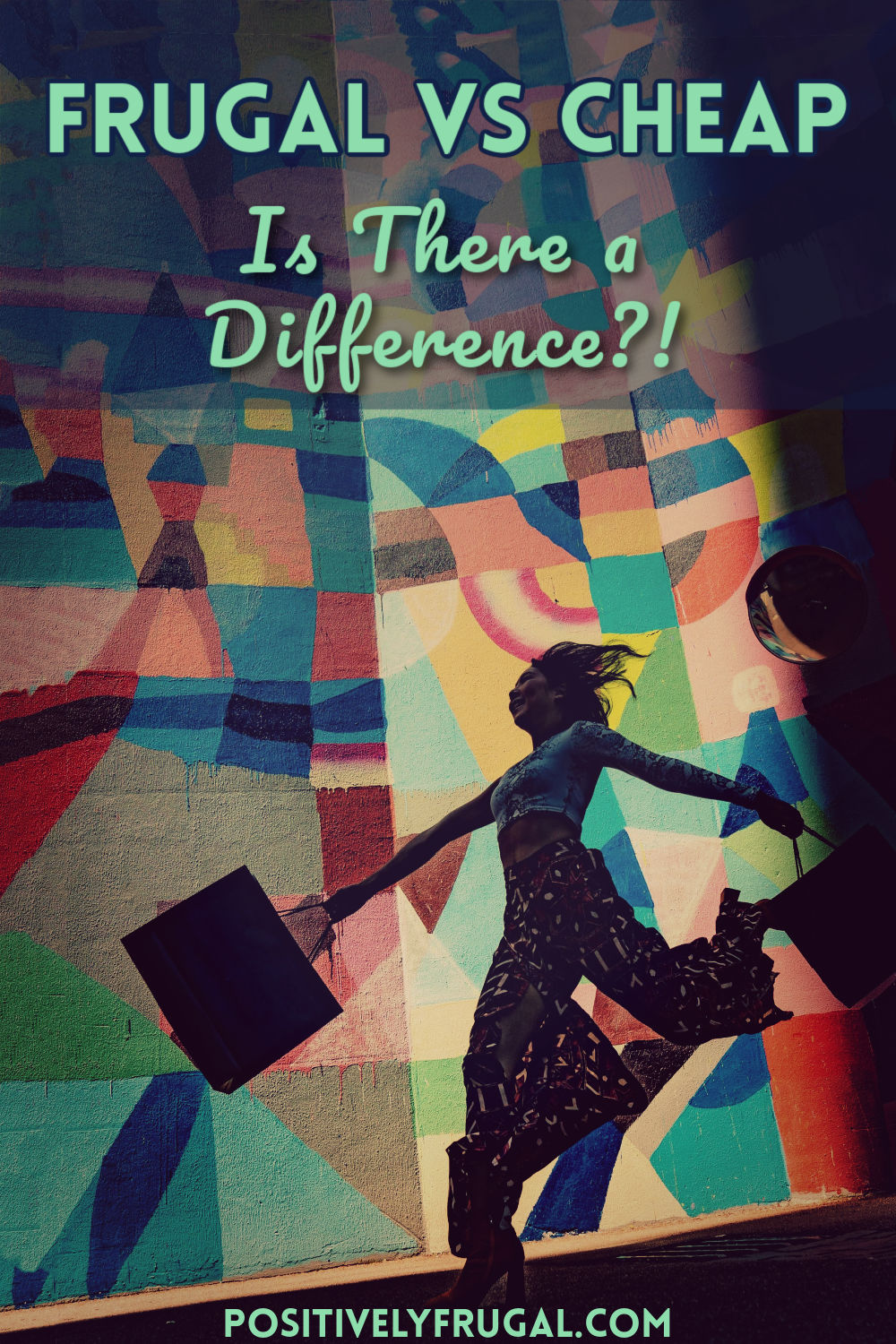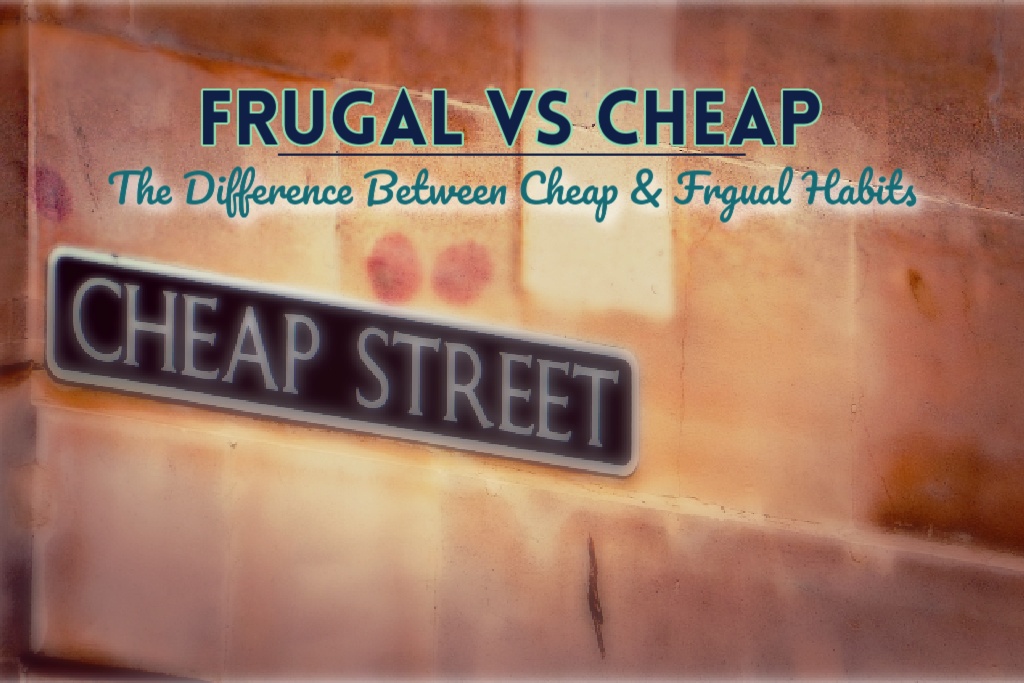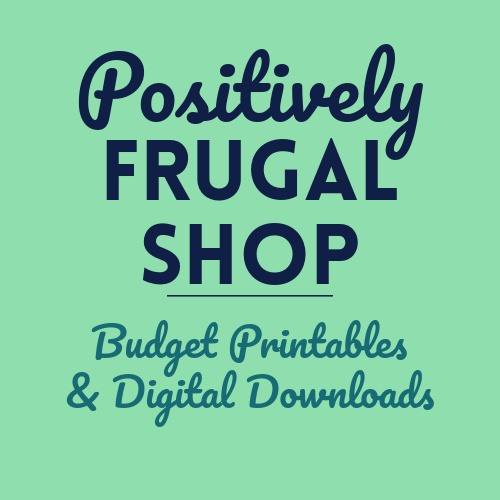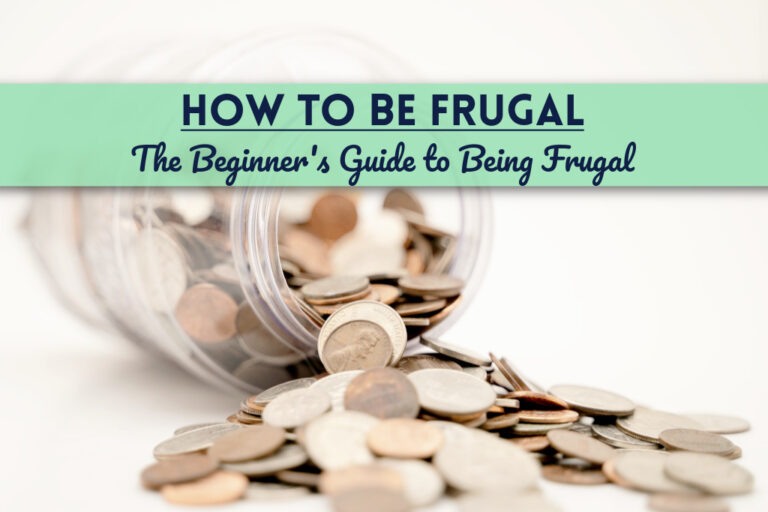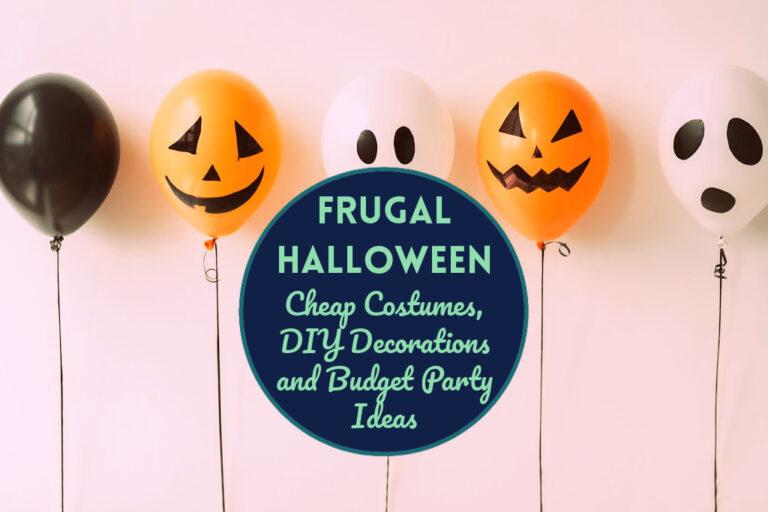Some of the links on this site are Affiliate Links and if you use them to make a purchase, we may earn a commission. For more information, read our Disclosure Policy.
Frugal vs Cheap – is there a difference?
These words are often used interchangeably, but they are definitely not the same. Not only are their meanings distinct, but the habits associated with these words are noticeably different.
What is the Difference between Cheap and Frugal?
Before we get into the different habits of being Cheap vs Frugal, let’s delve into the definitions of Frugal and Cheap.
Frugal Definition
According to Wiktionary, Frugal is defined as: Avoiding unnecessary expenditure either of money or of anything else which is to be used or consumed; avoiding waste.
The word, Frugal, can be traced to the Latin word Frux – which means Value.
Definition of Cheap
By Wiktionary definition, Cheap means: Low and/or reduced in price; of poor quality; of little worth.
Comparing the Difference between Frugal and Cheap Definitions
In the definition of Frugal, the words that stick out to me are: Unnecessary, avoiding waste and value. When it comes to money, financial decisions and making purchases, these are all positive words.
On the flip side, Cheap is defined with words like poor quality and little worth – and these are not words that people typically want to be associated with.
I think that in the Frugal-Cheap debate, it is obvious that being frugal is favored over being cheap, but let’s take a closer look at the habits of frugal people vs cheap people.
Frugal vs Thrifty vs Cheap vs Stingy
In addition to Frugal and Cheap, Thrifty and Stingy are other common words used when describing how people handle their finances.
While these words all mean something different, Thrifty is more closely related to Frugal and can be used as a Frugal synonym, while Stingy is likened to Cheap.
More specifically, a thrifty person often has a frugal mindset but is willing to take it to the next level by seeking out unique economical savings. Whereas, a stingy person is usually cheap, but can also be perceived as mean-spirited and ungenerous demeanor.
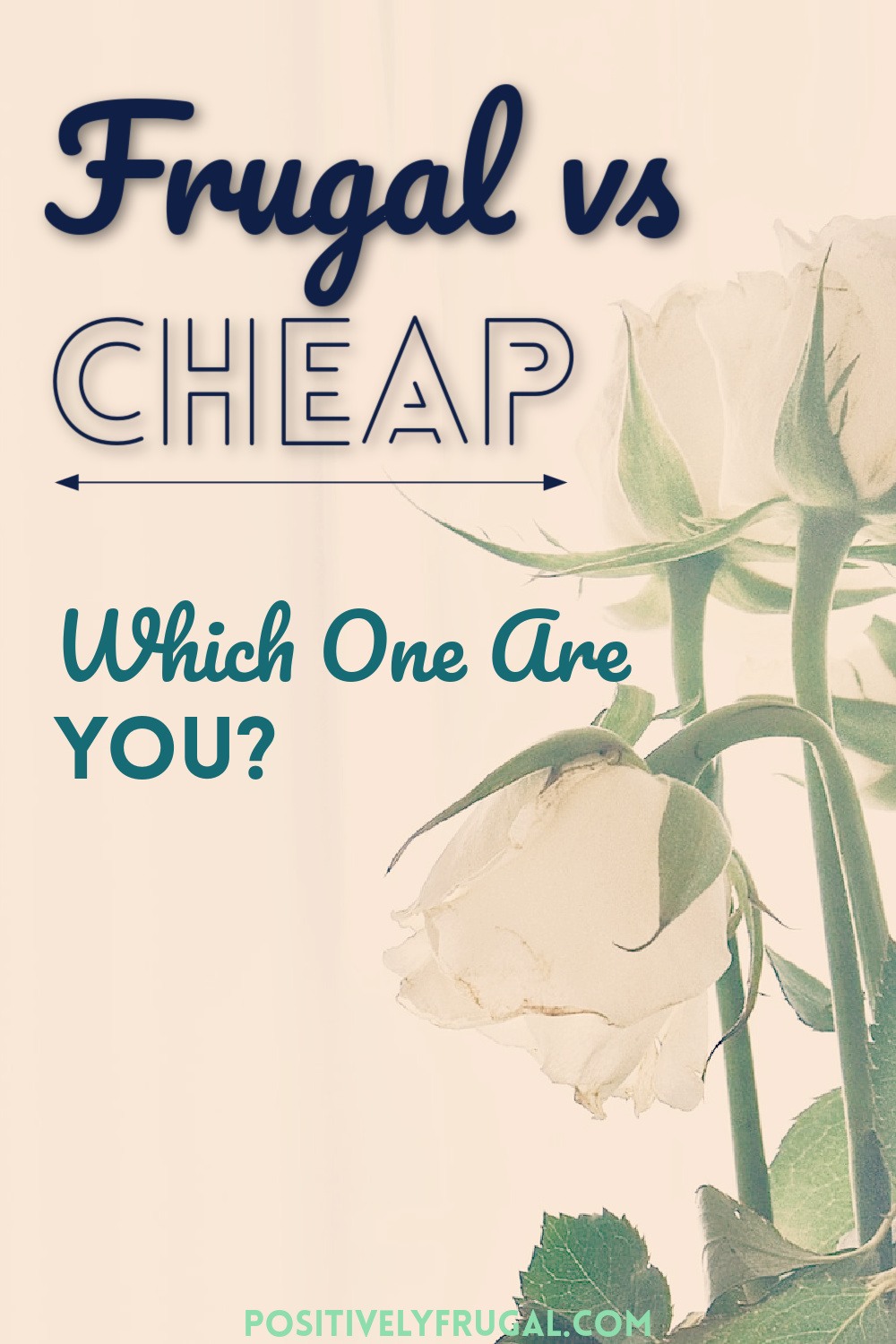
Frugal vs Cheap: 4 Ways They Are Different
Now that we better understand the definitions, it’s time to share some examples of a frugal lifestyle vs a cheap one. In these illustrations, we note how to be frugal, but not cheap.
#1 The Value of Something vs The Cost of Something
The main difference when examining Frugal vs. Cheap can be seen in the types of products they purchase.
Someone who is living a frugal life takes into account the value of things. Before making purchases, they likely research the product – and they are willing to pay a little more for good quality.
People who are cheap can’t see past the price tag; they always go for the lowest price. They are willing to forego quality in favor of the cheapest option available.
This is how being cheap can be a hinderance in the long run. Poor quality products are a quick fix, but can be quick to break, too – which isn’t a way to save money.
Shoes are a classic example. My husband and I enjoy walking and hiking, so shoes are an important purchase for us.
We have gone down the road of buying cheap shoes and – as we should have anticipated – the poorly made shoes lasted only a few months before we needed to replace them.
Now, we spend more upfront for better quality shoes – and they tend to last an entire year. Not only are our feet more comfortable, but we realize a significant savings by not having to continually replace worn out products.
By looking at the bigger picture, we have learned that spending more for a quality item will result in us saving money in the future.
Pro Tip: Be sure to read more of my top Frugal Fashion Tips before heading out to shop!
#2 Selectively Spending vs No Spending
Another difference between frugal and cheap people are their general spending habits and over all financial goals.
Frugal spending tends to be judicious. People who are frugal are not afraid of spending money; they just make sure that they are spending it on things they need or truly want.
Prior to pulling out the wallet, a frugal person will take time to determine if the purchase is worth it. If it is, they find a way to save for it with a sinking fund or budget for it.
A cheap person, on the other hand, may flat out not spend money – even if it is in the best interest to do so.
They can do without and make do in extreme measures – which, again, can prove to be a detriment to their overall finances or quality of life.
An example of this is drafty windows. In a frugal home, they would research affordable methods to seal the windows and start saving for new windows, if need be, with a specific window sinking fund category.
In a cheap household, they would use old towels or other free makeshift ways of sealing the drafts; meanwhile, the house is still too cold and their electric bill soars.
Pro Tip: Making a monthly budget is like creating a roadmap for your money. Find out how easy it is to make a budget!
#3 Cost of Time vs Sales Price
How a person perceives their time is another indicator of whether a person is frugal or cheap.
One of the qualities of a frugal person is that when deciding to spend money (and what to spend it on), they consider their time. What I mean by this is that they include the value of their time, effort and energy in the price of an item.
Someone who is cheap, however, looks at the sales price as a very specific amount. They are more willing to sacrifice time and energy in order to get a deal – which is not always advantageous.
Flash sales, like Black Friday Deals, are a prime example. A frugal person will study upcoming deals, do product research, and then consider if it is worth it to chase a deal. They will also determine if there are other – or possibly even better – deals to be had later in the year.
Meanwhile, a cheap person will look at the dollar figure – an advertised $500 television on sale for $100 – and do whatever it takes to score the prize.
They will drive across town or stand in a line for hours, completely disregarding the value of their time, just to get the deal (even for something they don’t need).
Pro Tip: The holidays can be expensive, but we have tips on How To Celebrate Christmas on a Budget.
#4 Big Picture vs Narrow View
Another way to differentiate between a person is being frugal or cheap is how they assess their overall money situation and lifestyle.
One of the habits of frugal people is that they tend to look at the entire picture. They take into account their budget, spending and lifestyle as a whole.
In order to get the big picture, they create a plan and analyze their overall goals – both long term and short term goals. Plus, their long-term quality of life is a major factor when determining said goals.
Cheap people, however, are intensely focused on the here and now. One of the signs of a cheap person is that they often try to find financial shortcuts and struggle to see the longevity of their situation.
More important, however, is that they do not consider how their stringent money goals might diminish their overall quality of life.
One example of this is buying a car. A frugal person, who doesn’t have enough money for a car, will make a long-term plan for purchasing a car.
In the short-term, they might need to use a car alternative – like taking the bus or hitching a ride with a co-worker – all while saving up for an affordable and reliable used car.
A cheap person, on the other hand, is more likely to quickly solve their problem by desperately seeking out the absolute cheapest car they can find – and they may even take out a loan in order to buy it.
Car troubles and car failure are almost inevitable, and they will find themselves right back in the same spot – carless – in a short amount of time.
Pro Tip: Knowing your Money Numbers can help you see the big picture of your financial situation.
Can People Be Frugal and Cheap?
Yes, it is possible – in fact, likely – that people have both frugal and cheap tendencies. Frugal living is not a black-and-white existence.
A frugal person who is very diligent in making purchases for themselves might be a cheapskate when it comes to gift giving and someone who is extremely frugal might display many cheap habits.
Meanwhile, a cheap person who refuses to spend money on clothes may be frugal with their home appliances.
It is of course okay to be frugal and a little bit cheap! Every person is on their own financial path. While it does pay to be frugal in the long run, sometimes it takes awhile to learn the best frugal strategies.
Why Are People Cheap?
People can be cheap for many reasons; lacking know-how, desperation and stubbornness can all attribute to someone’s cheapness.
While being frugal – by choice or necessity – is a good and prudent way to handle finances, it takes time to learn and hone the skills required to be frugal with finesse.
How To Become a Frugal Person
I have outlined a few really good reasons why it is better to be frugal, not cheap. If you are trying to find the balance between a super cheap lifestyle and frugality, I can help!
I share detailed frugal advice for you in my dedicated articles for Budgeting, Eating and Living.
Being Frugal vs Cheap: Related Articles
- What is a Frugal Person? Someone who sets Financial Resolutions.
- Cheap Frugal Fun: Inexpensive Hobbies and Free Activities
- Frugal Cheap Fitness: Ditch the Gym Pass with Fun Free Fitness Tips.
- Thrifty vs Frugal: The Best Cheap Date Ideas!
- Living Tips: Frugal Advice for a Richer Life
- How to prepare for the Negative Stigma of Frugality (and how to overcome it)
Interested in more of my Life and Entertainment Tips? I round them all up on the Frugal Lifestyle page!
I Want To Know: Do you consider yourself frugal or cheap? What are some of your cheap or frugal habits?
Pin It!
